GDR writer Walter BAUMERT drafts film THE CHALLENGE
Description
– Wmore See pictures below! –
They bid on extensive materials (sometimes handwritten by hand, but more often typewritten) of GDR writer Walter Baumert (1929-2016).
For the premiere in 1986 Film "The Challenge" (about technology, especially microtechnology, microchips, etc.). Director: Achim Hübner. Actor: Joachim Zschocke, Annekathrin Bürger, Ulrike Kunze, Justus Carriere, Gabor Doza, Ursula Werner, Hildegard Alex, Klaus Schleiff, Wolfgang Greese and others First performance: 3. June 1986 (DFF).
There are two folders (together 2 cm thick) with newspaper articles on the topic, drafts and explanations of the film, materials about discussions about the film and a thicker folder (3.5 cm thick) with typewritten pages (in carbon copy) "further scenic versions Material" (only pictures 1, 34 and 48, each in multiple versions).
About the plot: "Dr. Markow (Joachim Zschocke), a committed physicist and researcher, can point to a great success: he succeeded in finding a theoretical solution to a problem that many colleagues and himself had been working on for years. This research result opens up possibilities and consequences of immense significance, which will pose an exorbitant challenge to his research collective, with him at the helm, and to the entire company. The whole project will also be a race against time. From this perspective, Markow acts with all his strength in the conflict-laden tensions of this difficult and risky project. In order to move forward, he has to surpass himself, so to speak; The goals envisaged for the production absolutely require this." (Source: online lexicon "Television of the GDR").
Weight: into the. 1.6kg.
The documents are somewhat disorganized; but sometimes individual complexes are held together by paper clips.
Condition: Pages often browned and stained; partly with edge damage. bplease note also the pictures at the end of the item description!
At the same time, I am offering original poems and drafts of novels by Walter Baumert!
Internal note: Baumert
Pictures
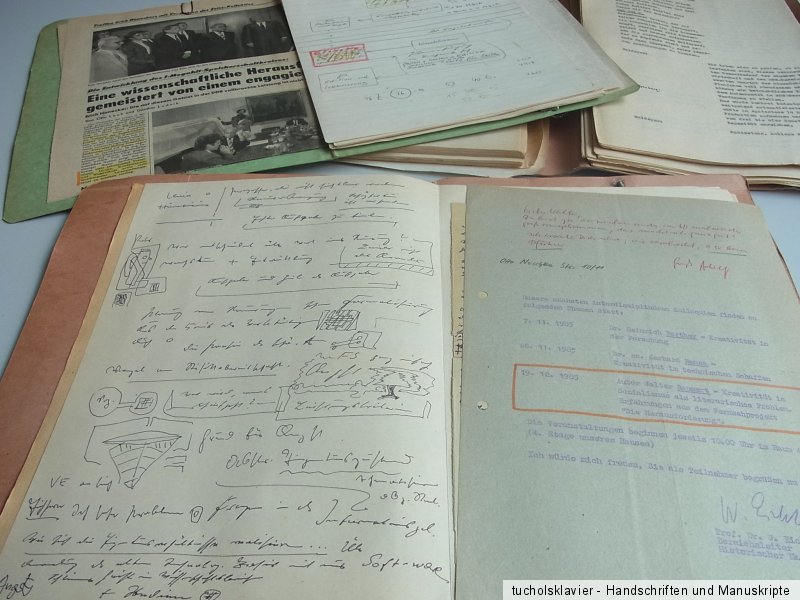
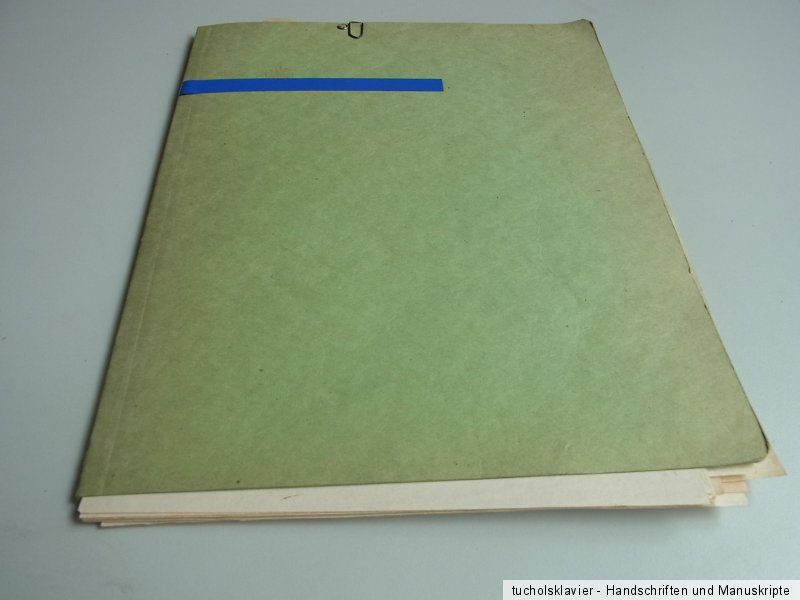

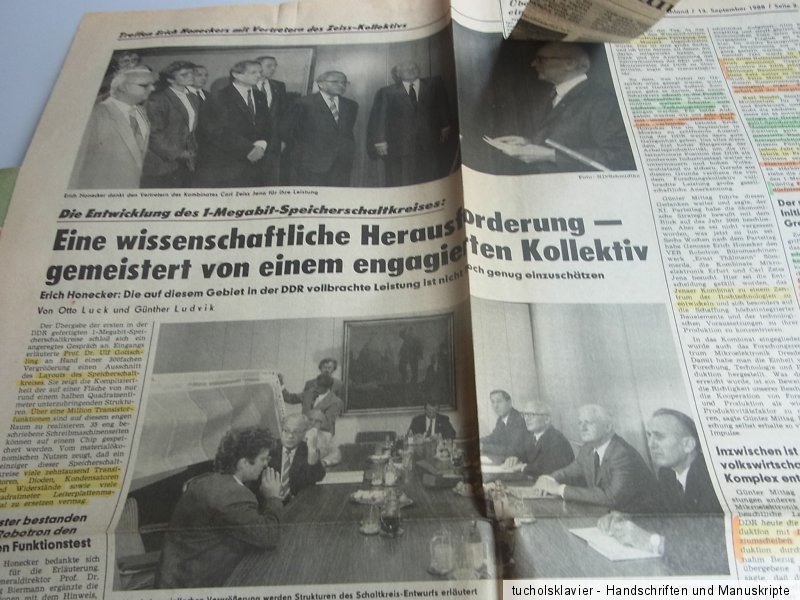
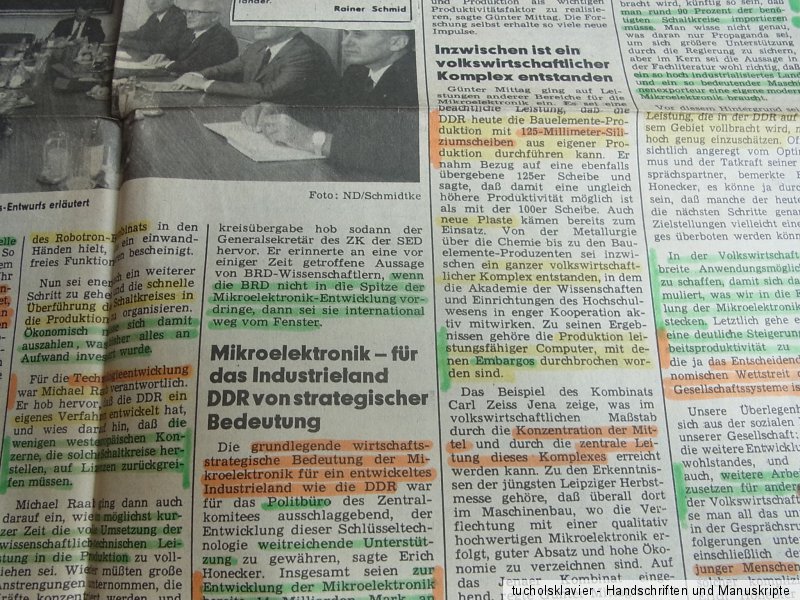
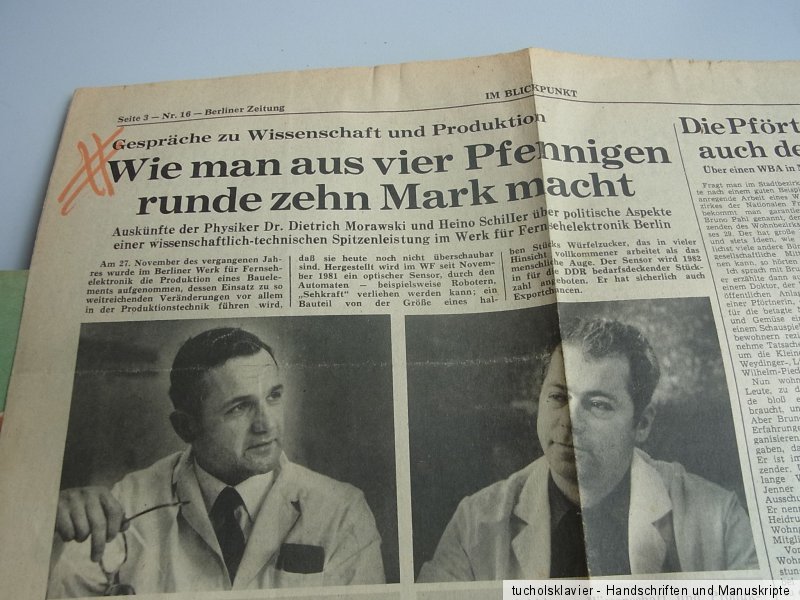
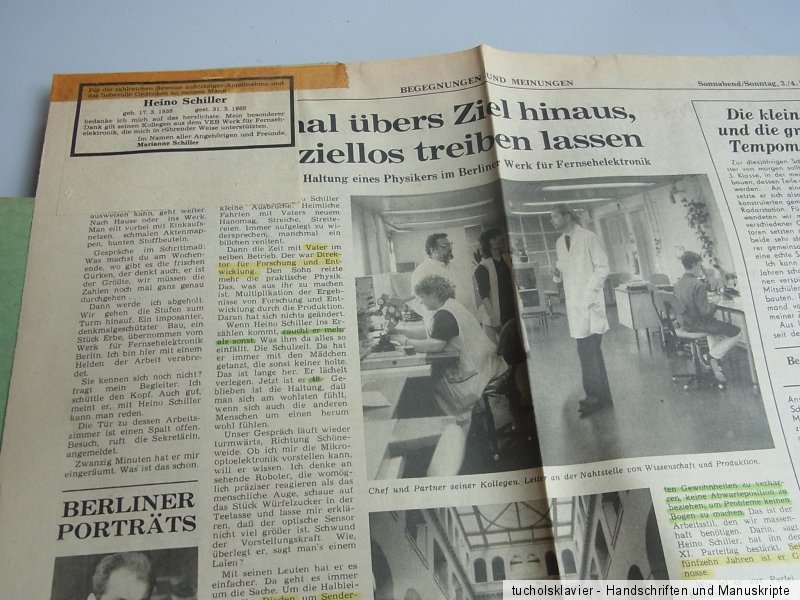
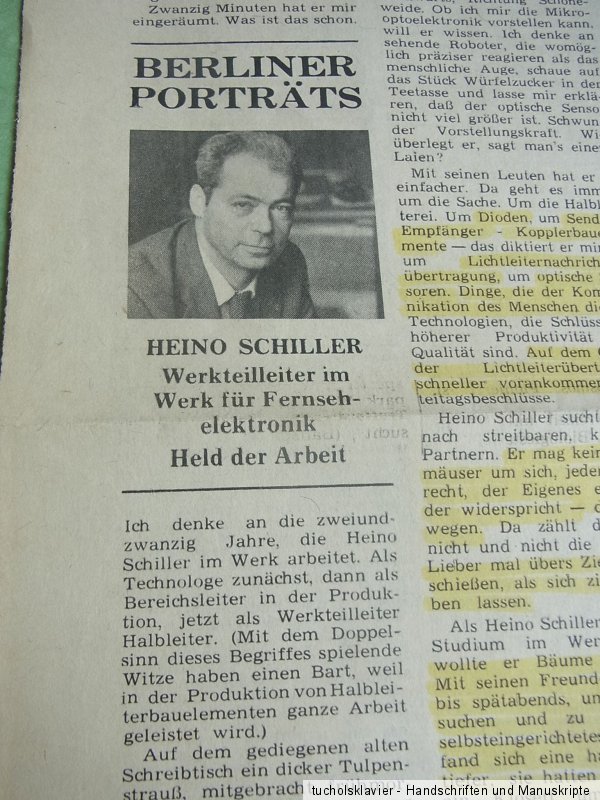
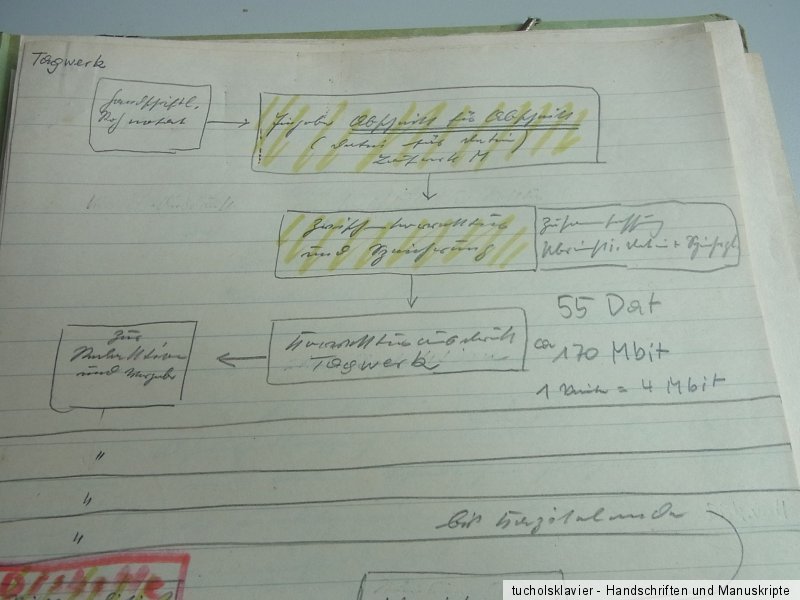


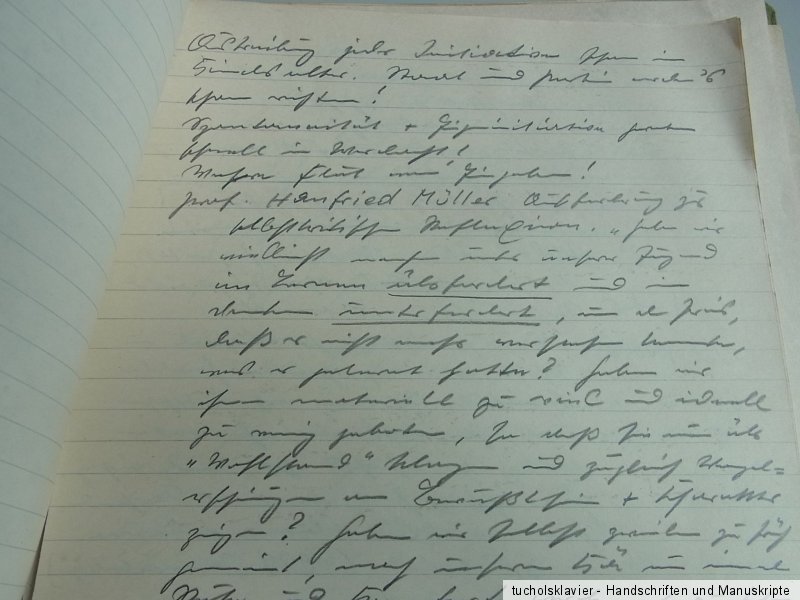


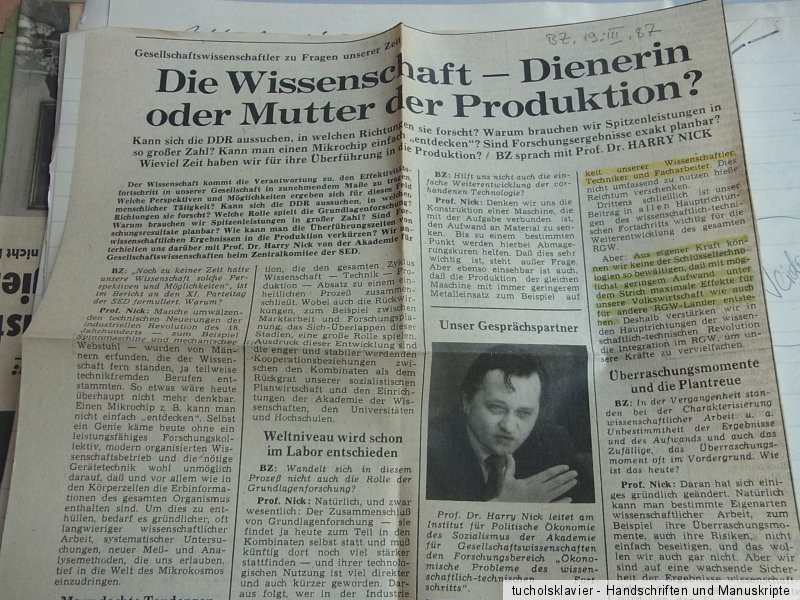

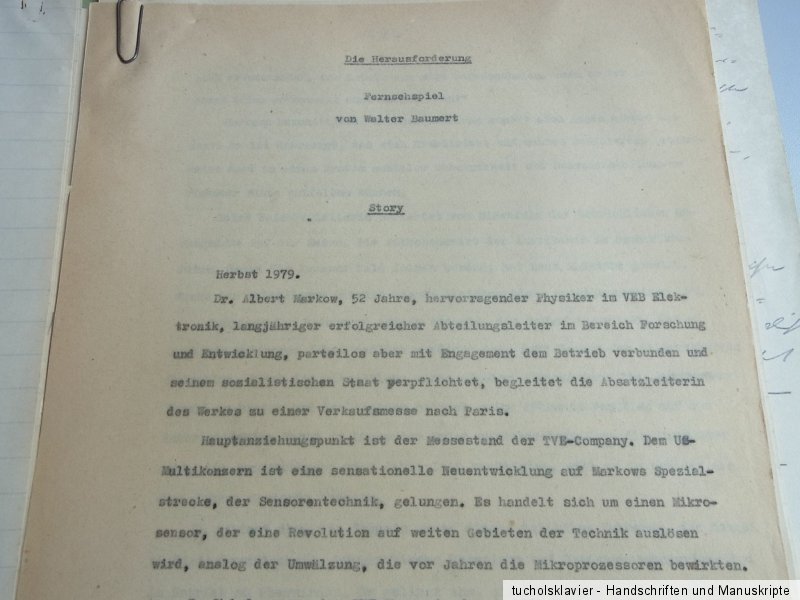
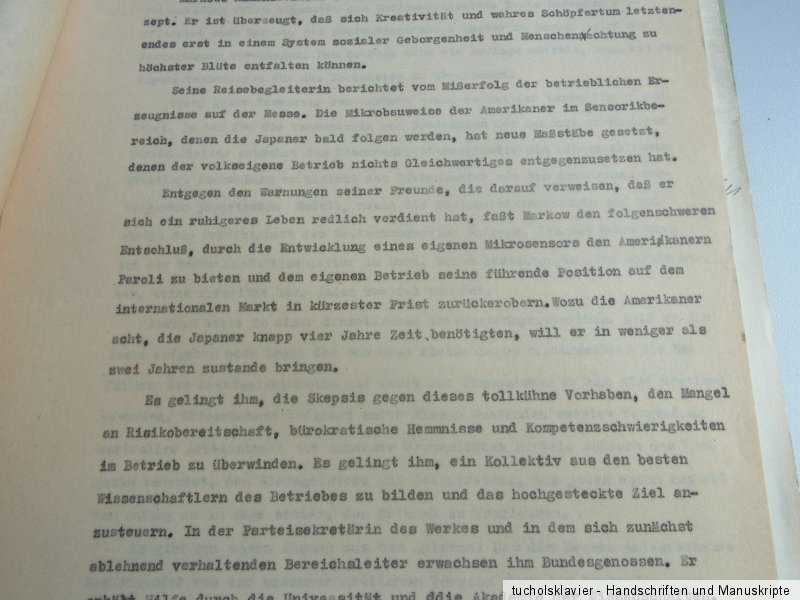
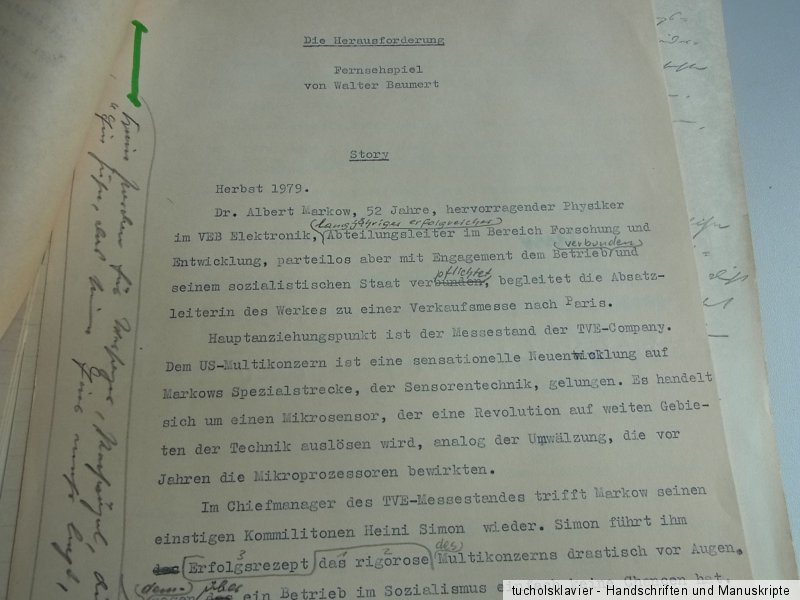
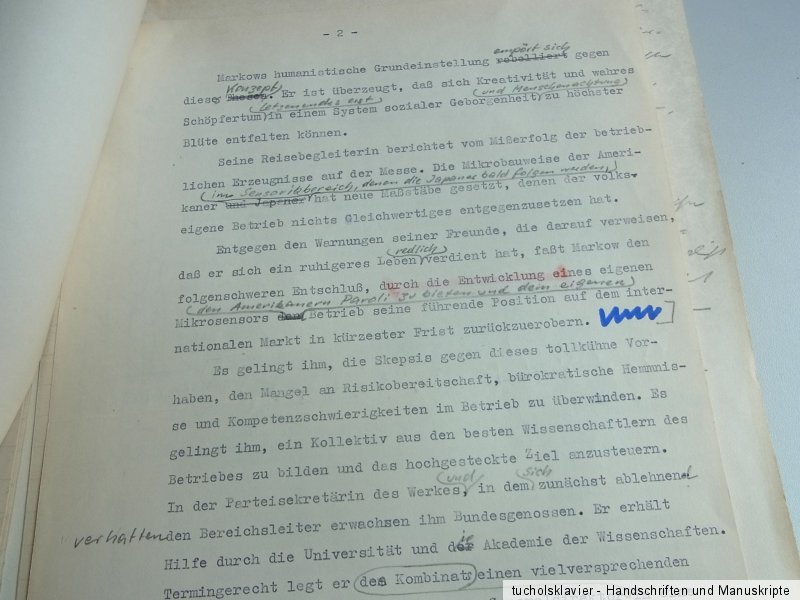
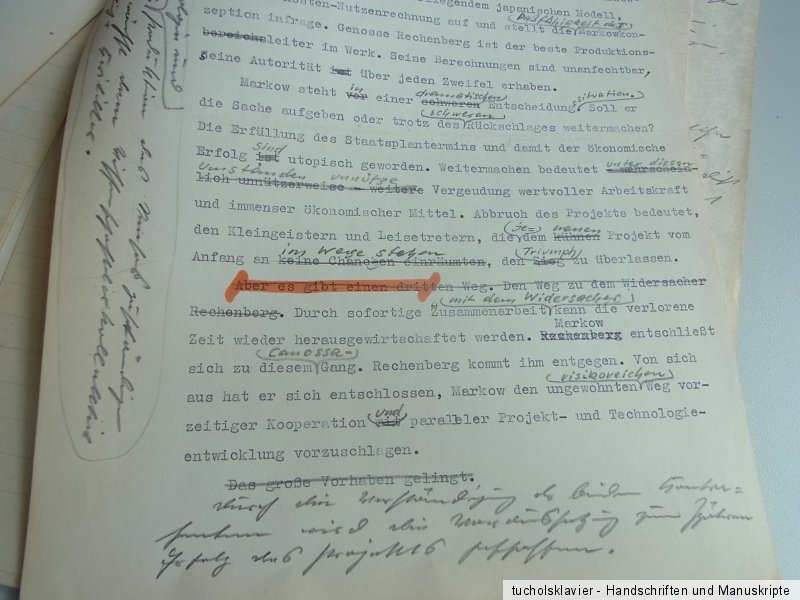
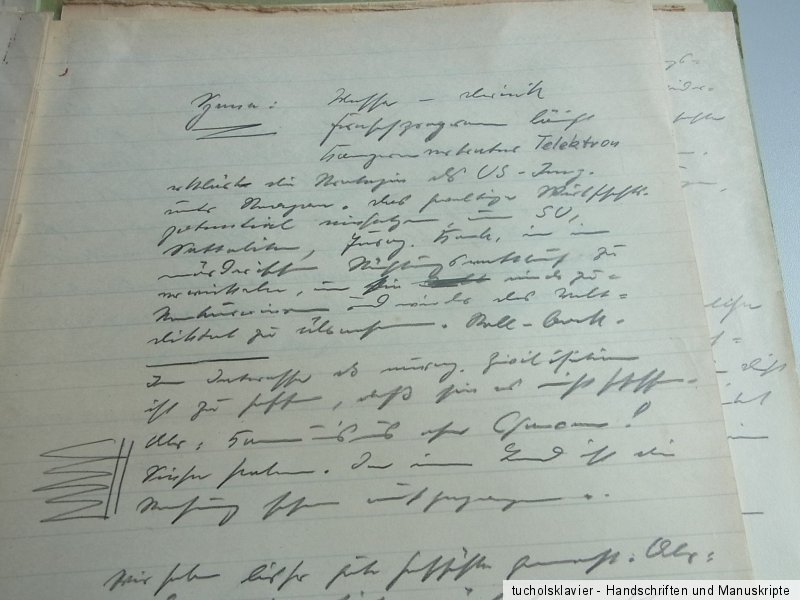
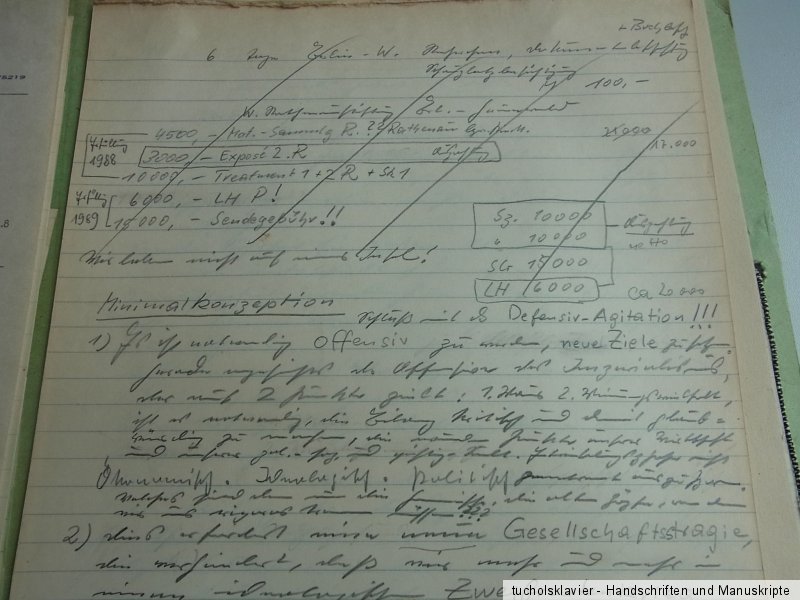

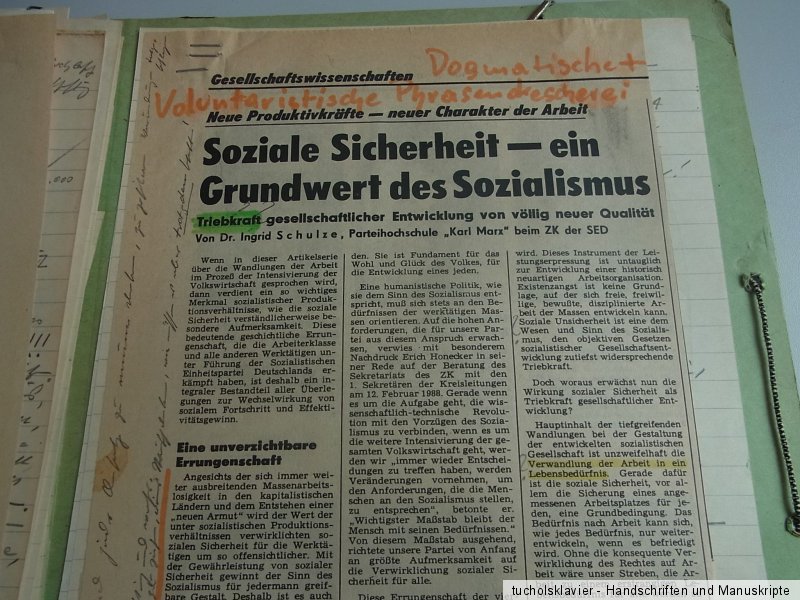

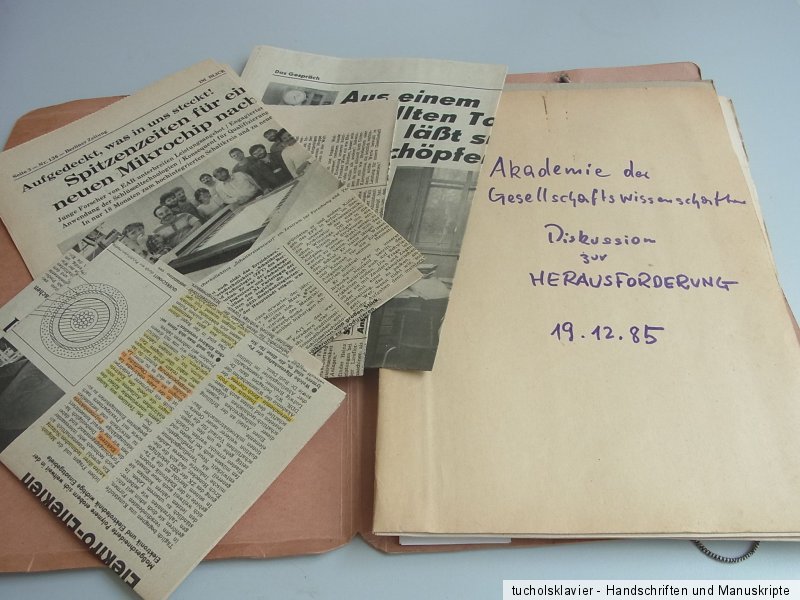

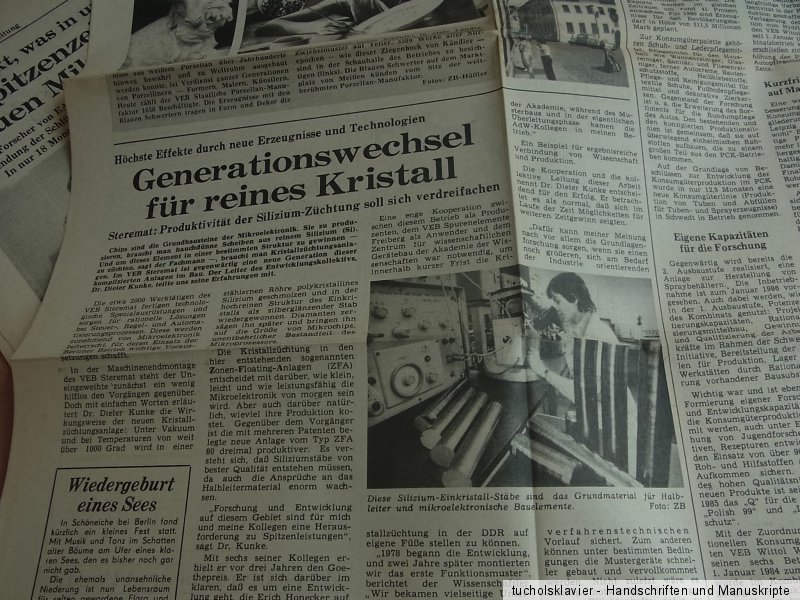


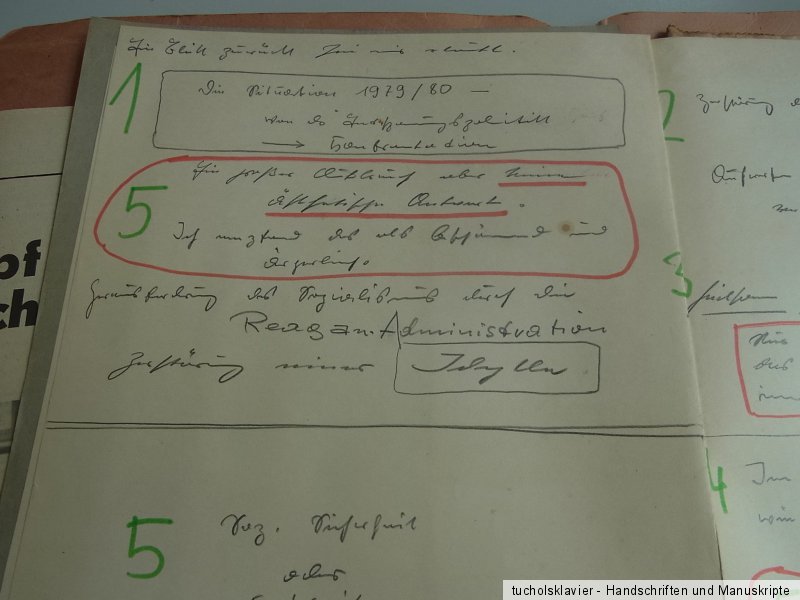
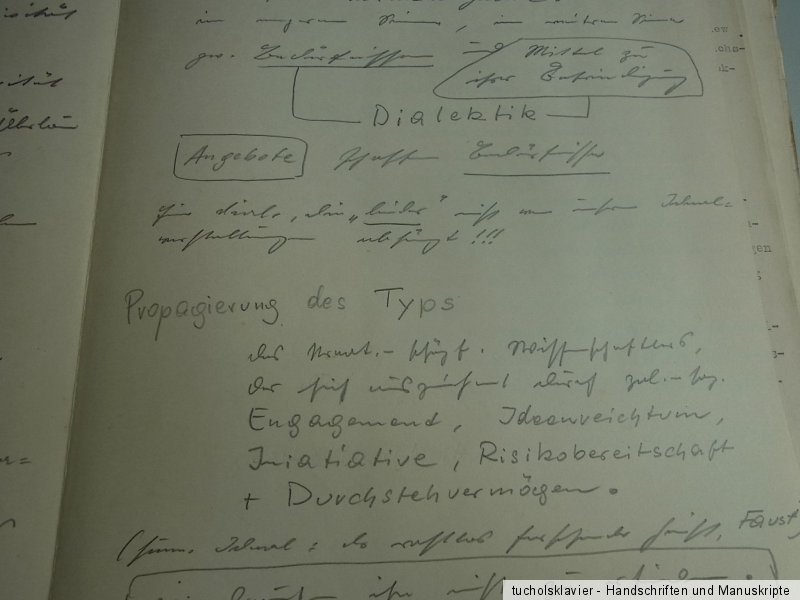
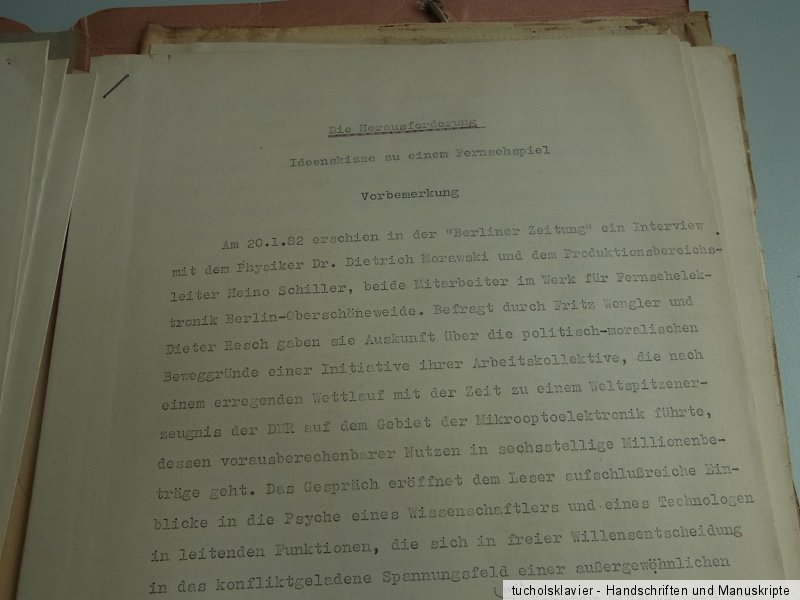

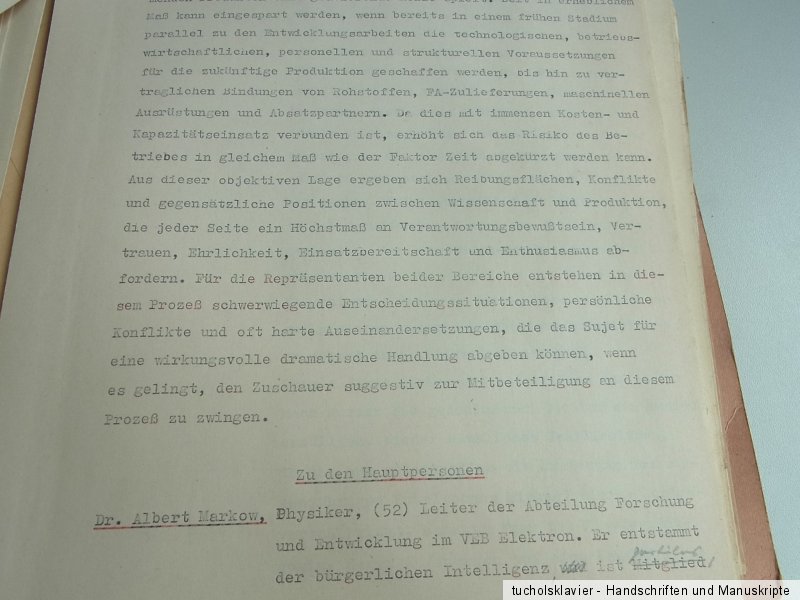
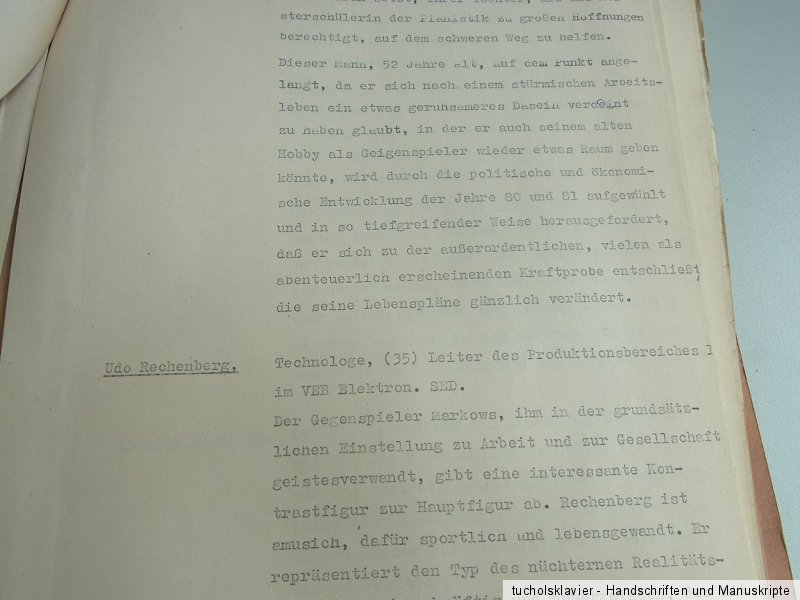
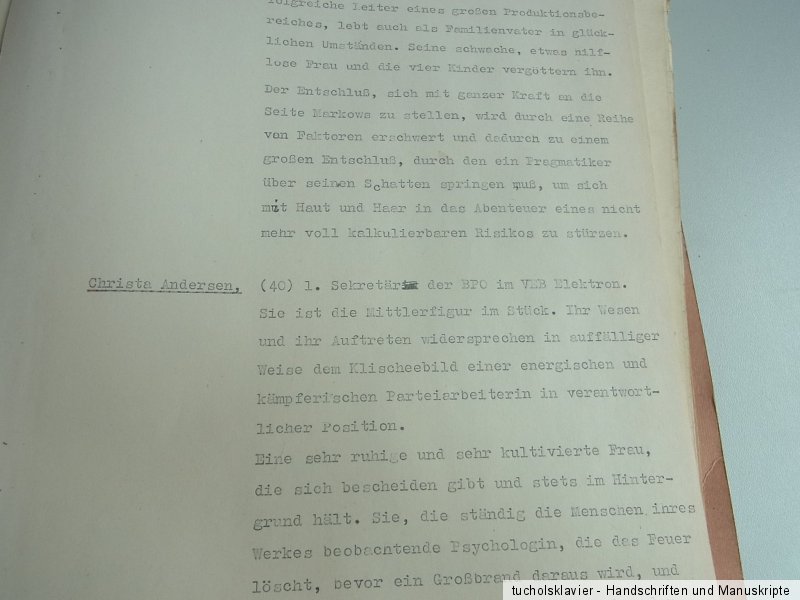
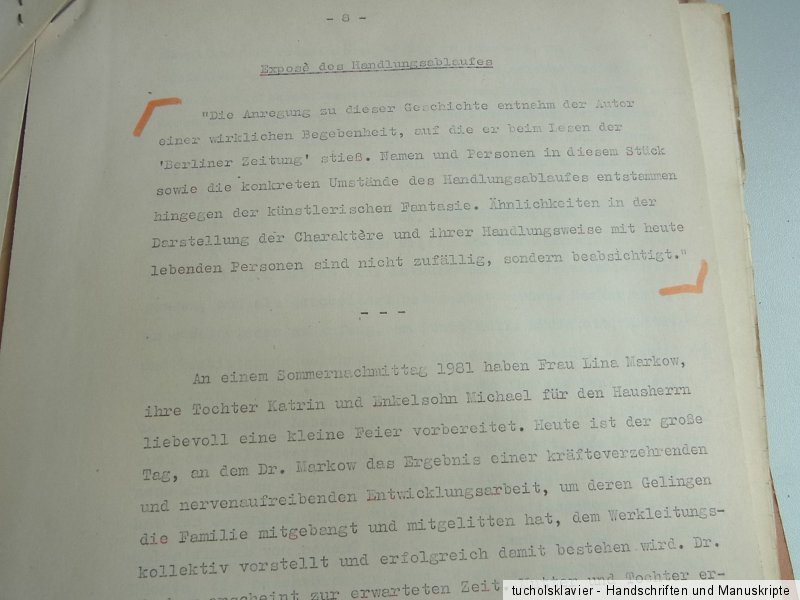
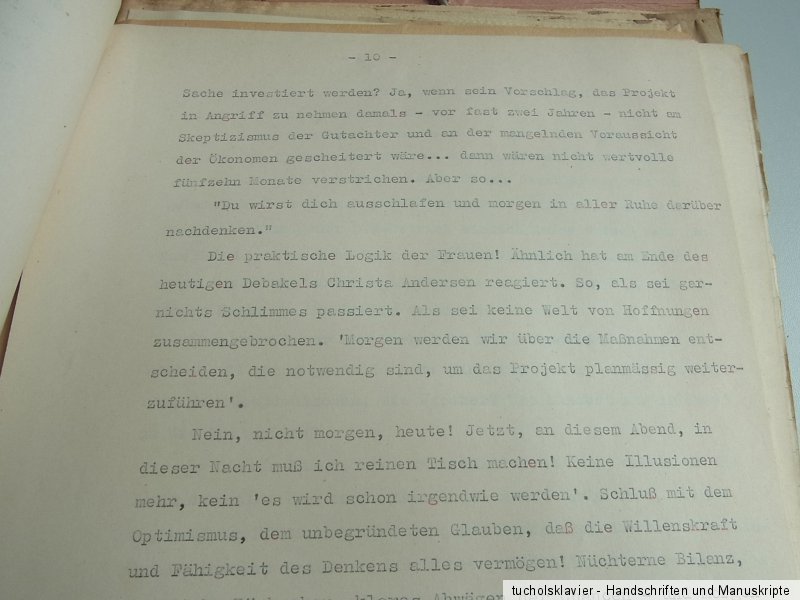
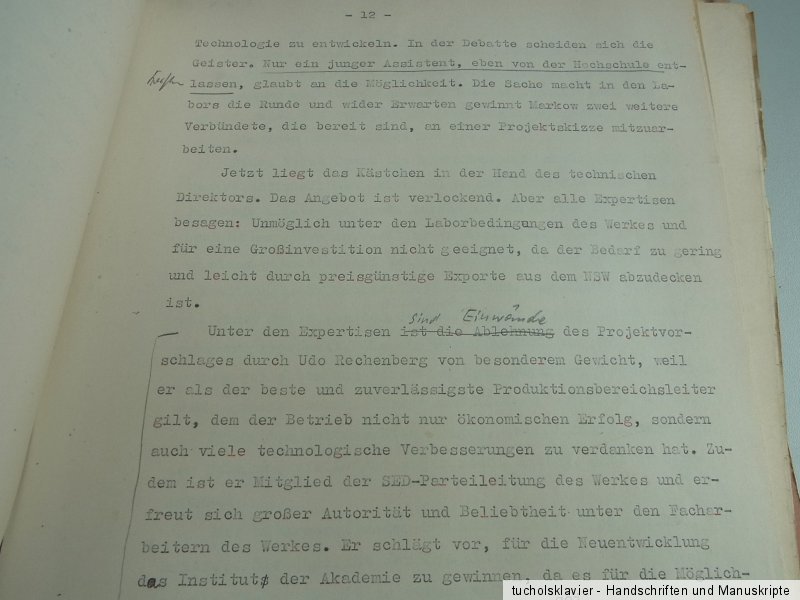
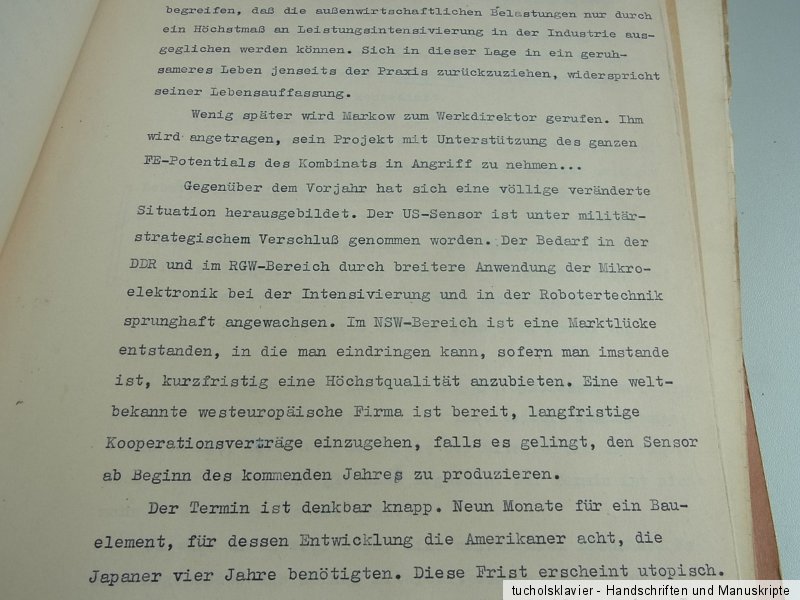
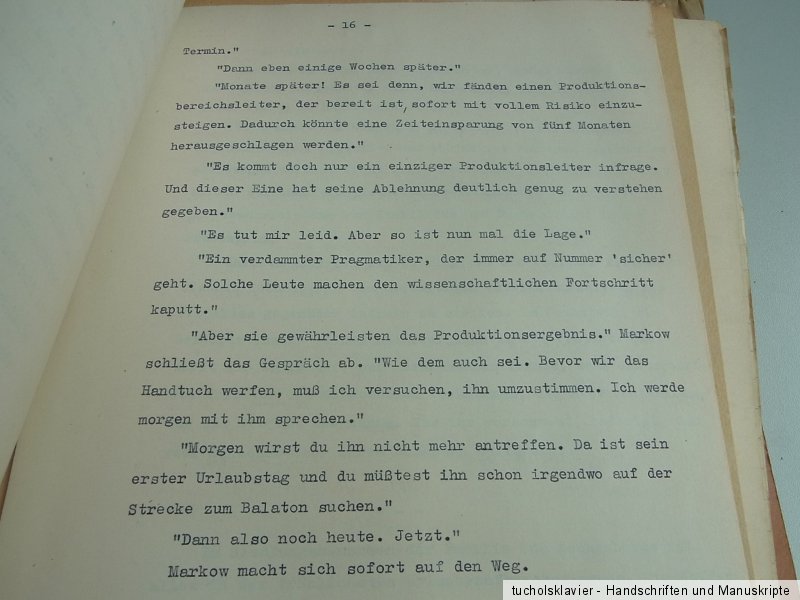
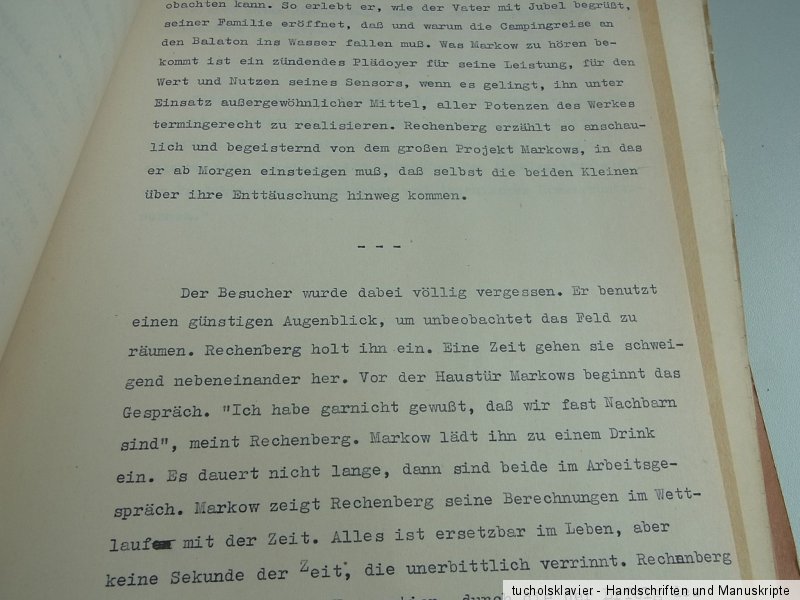
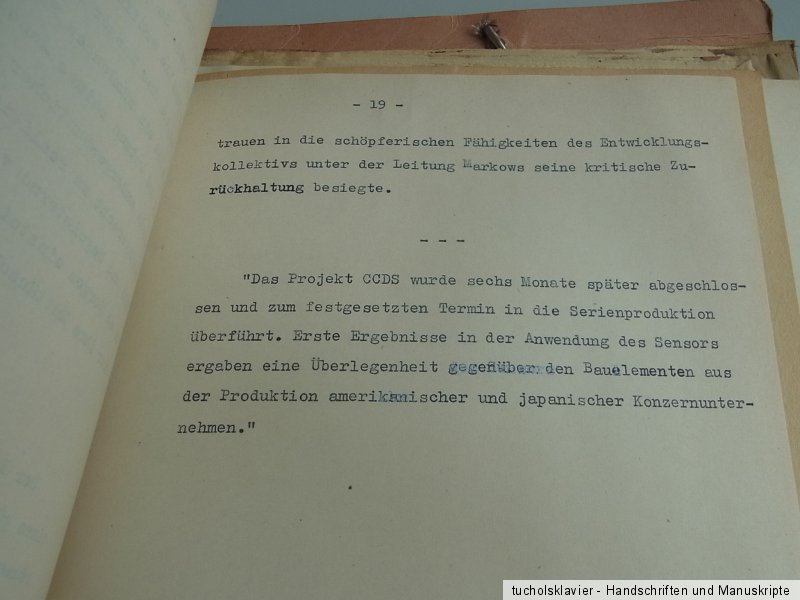

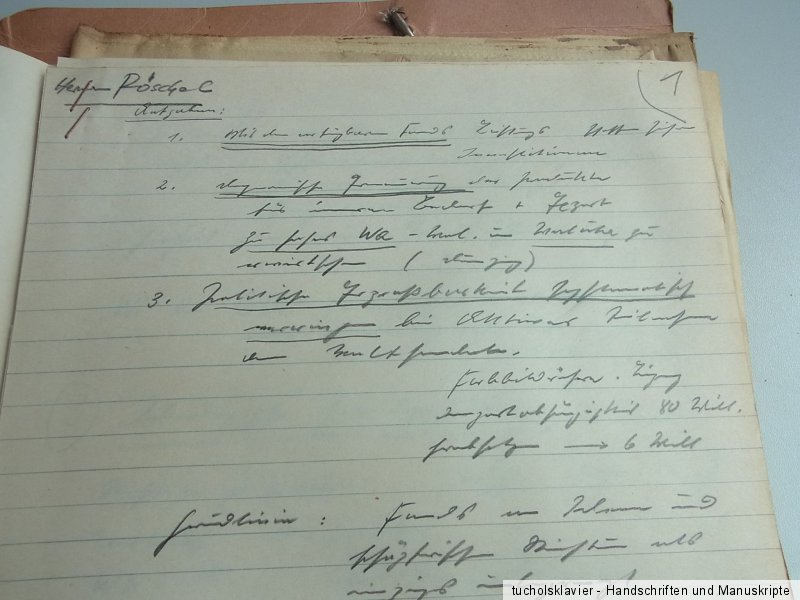
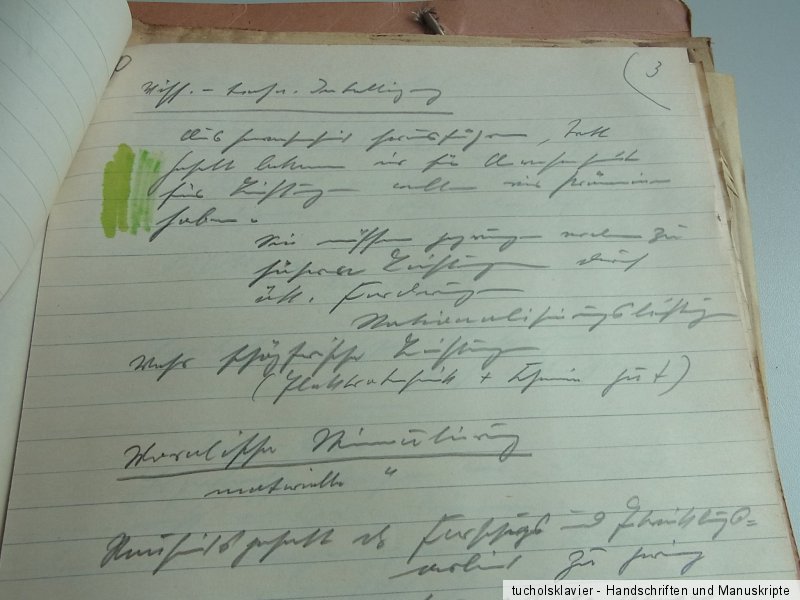
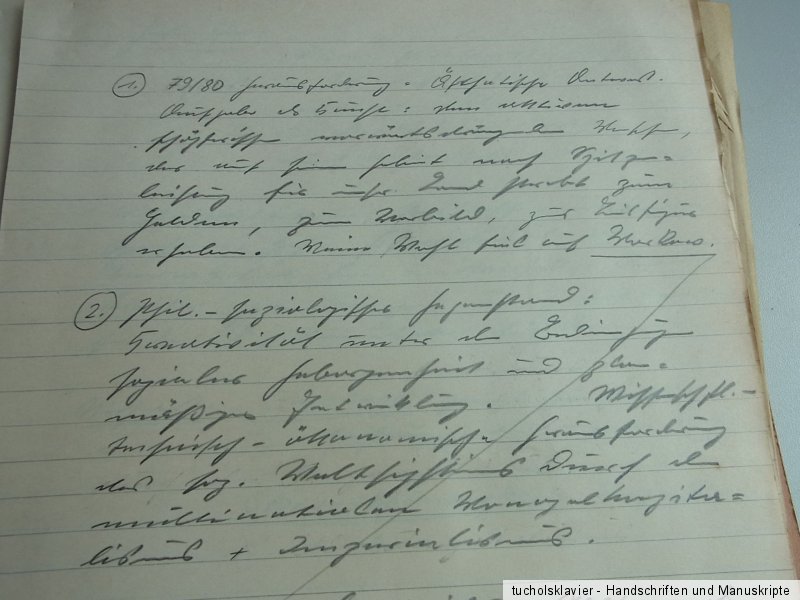
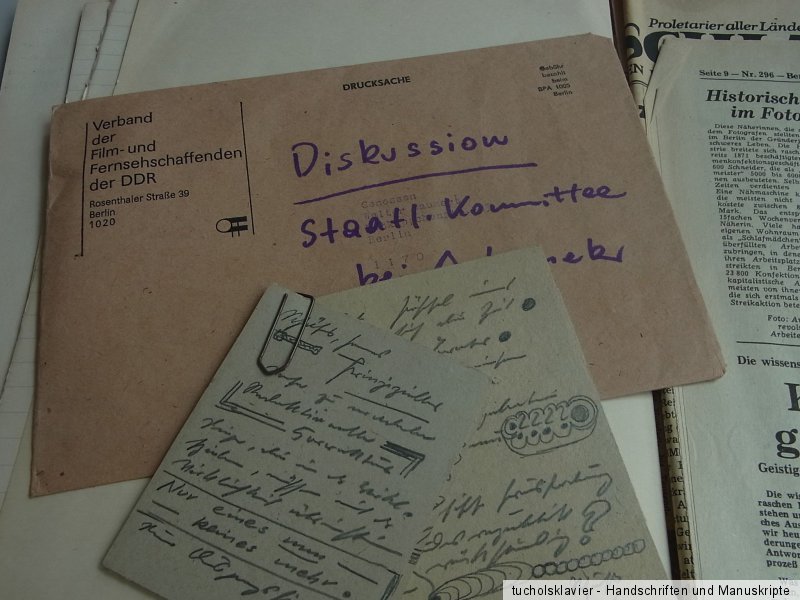
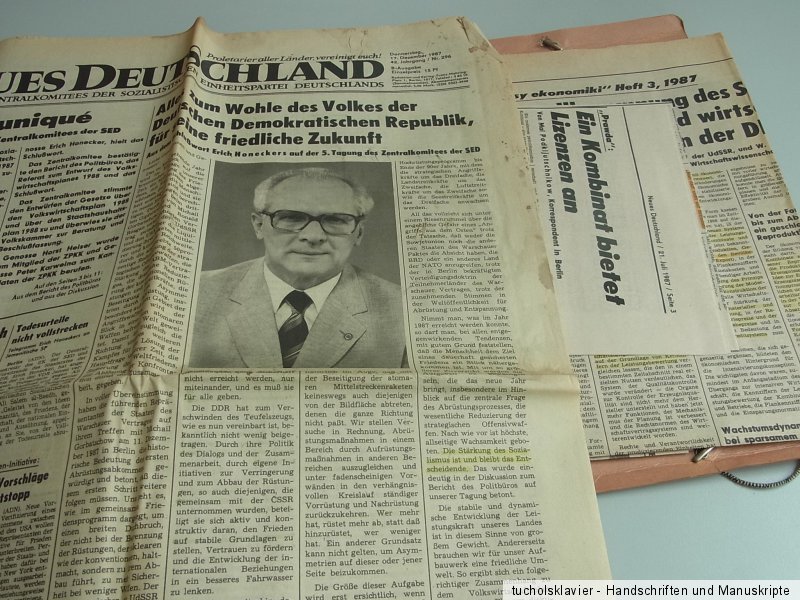
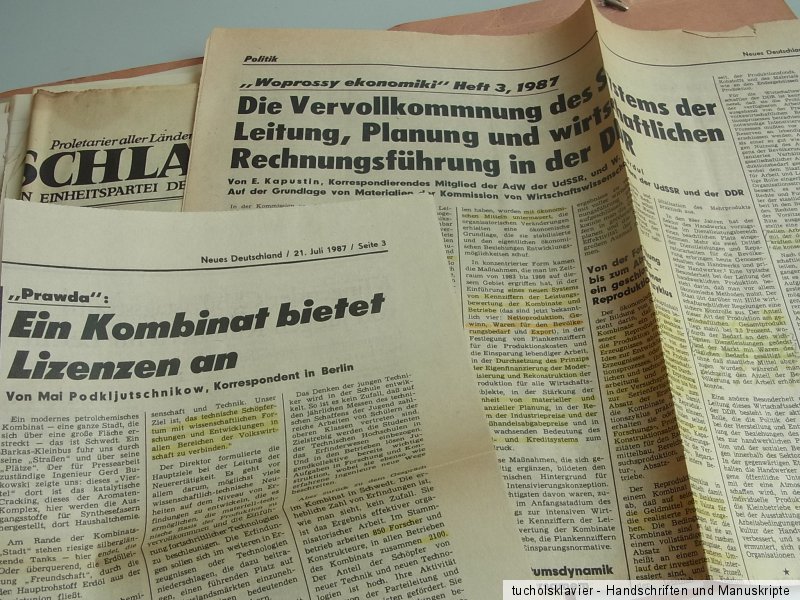
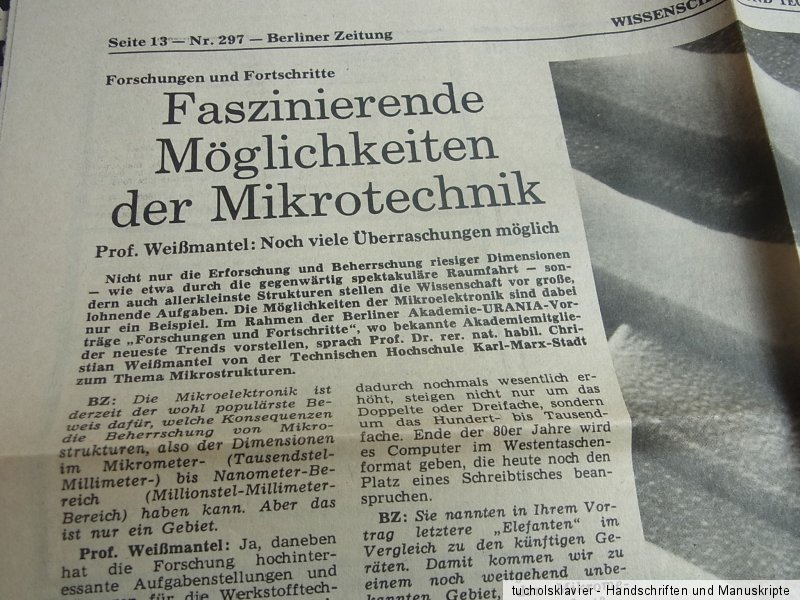
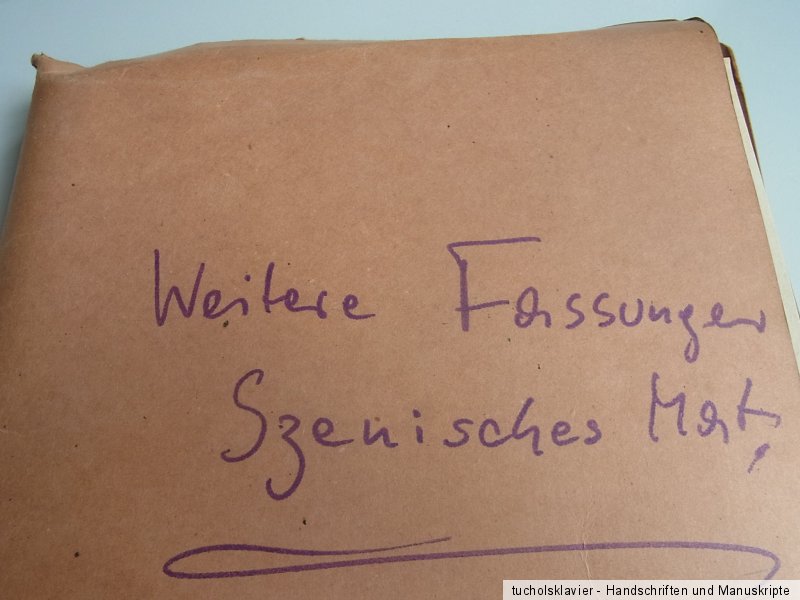

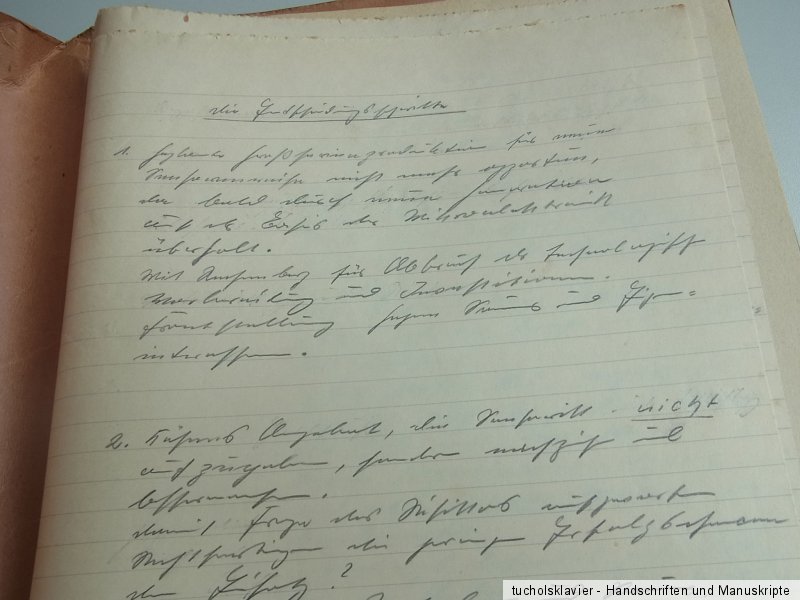
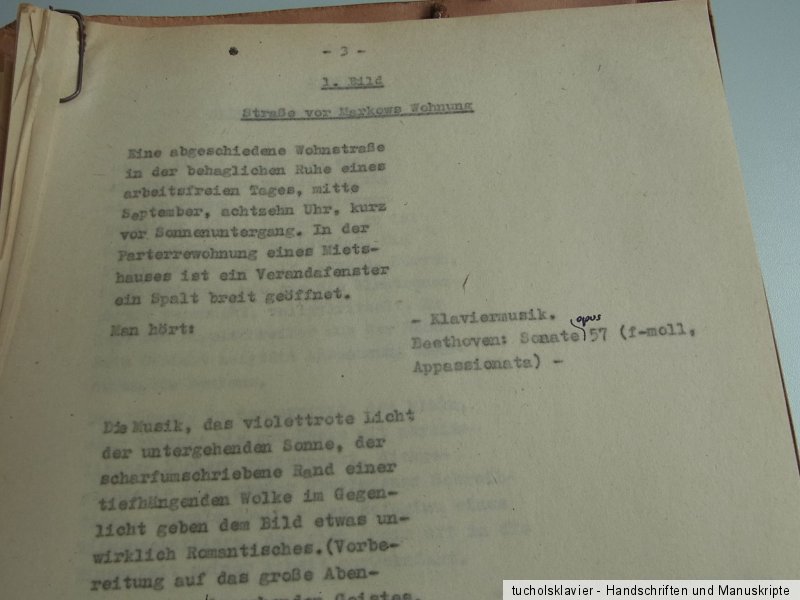

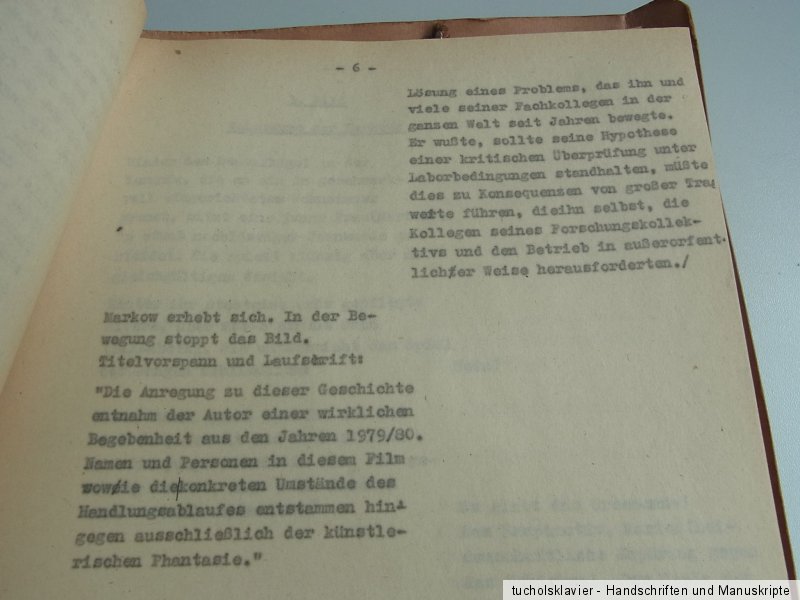
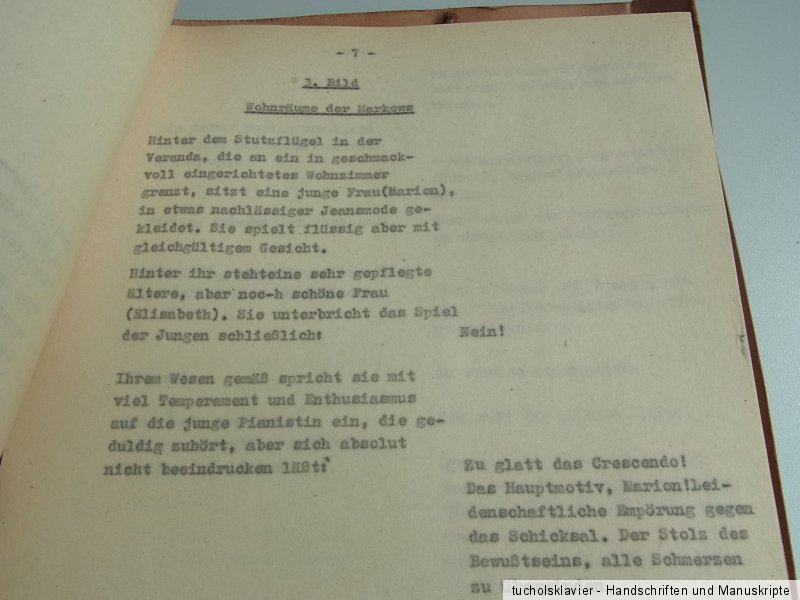

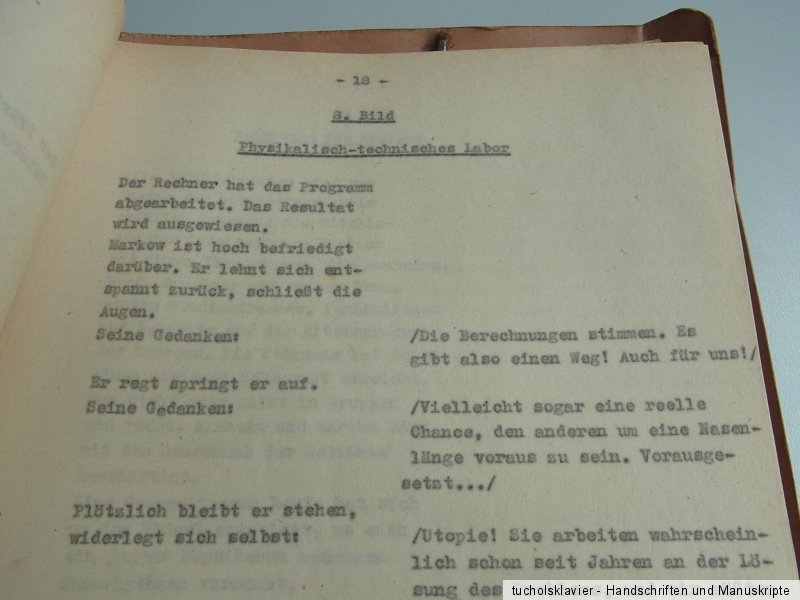

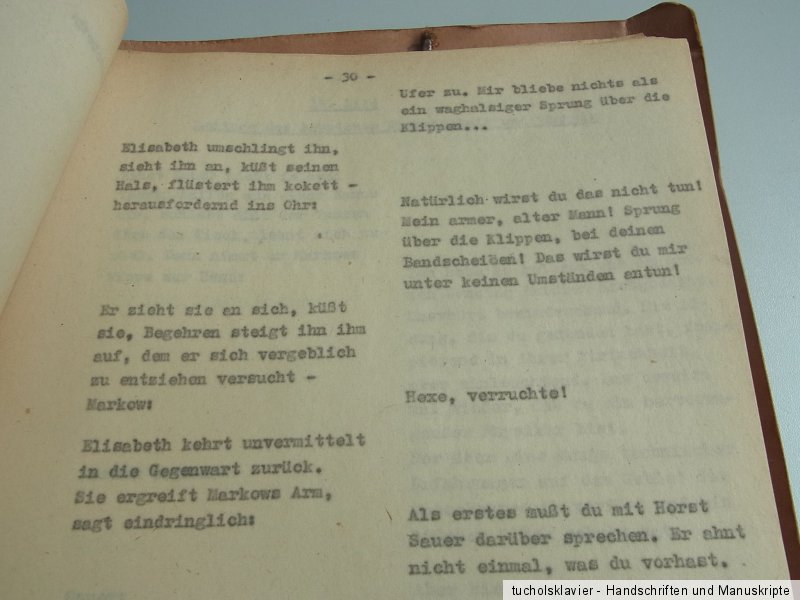
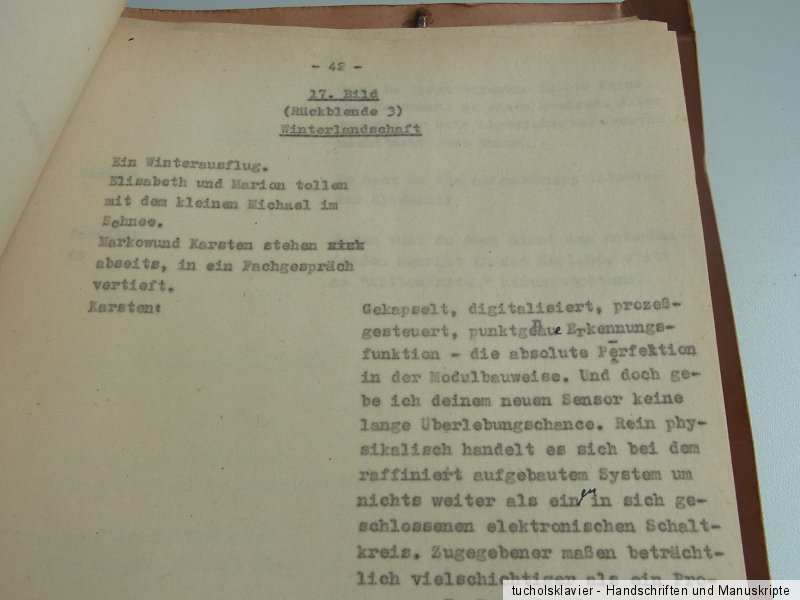
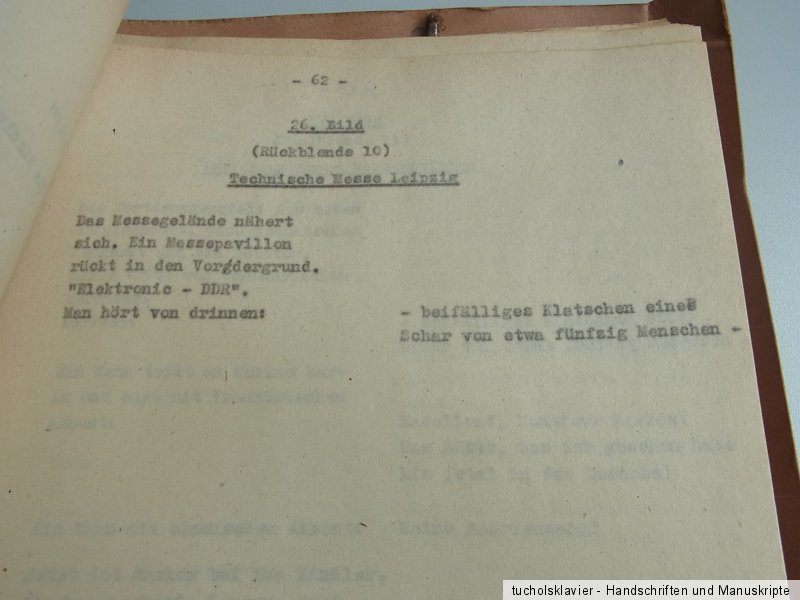
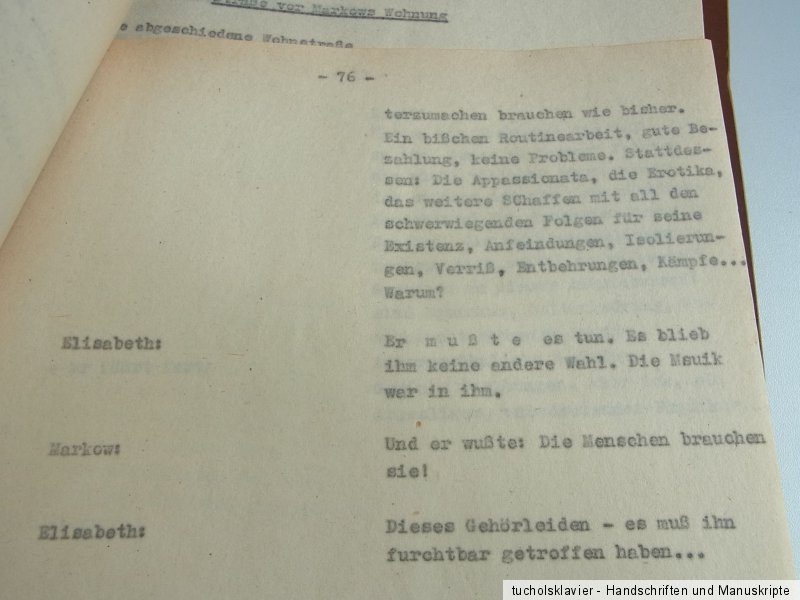
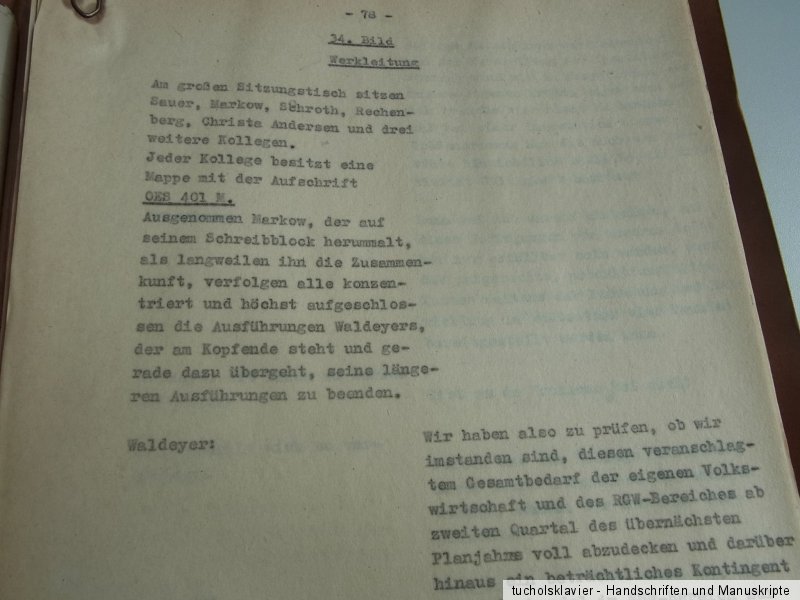

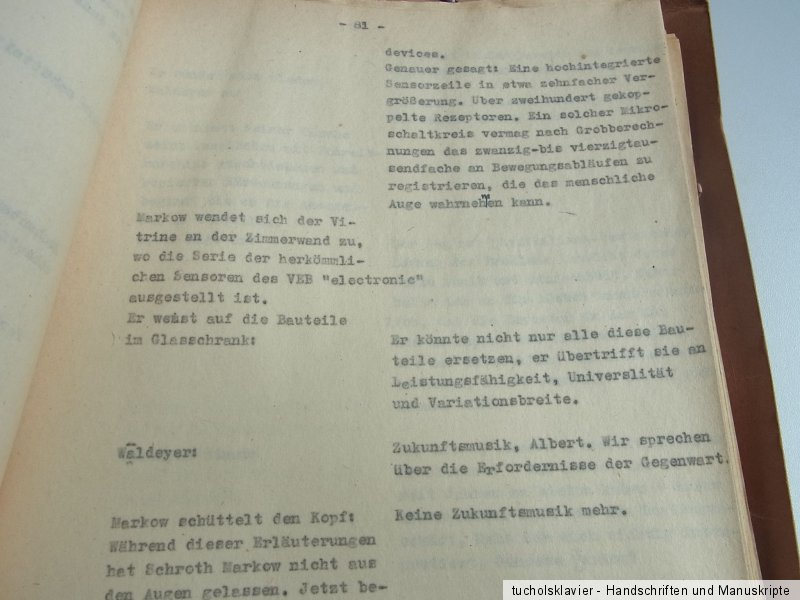
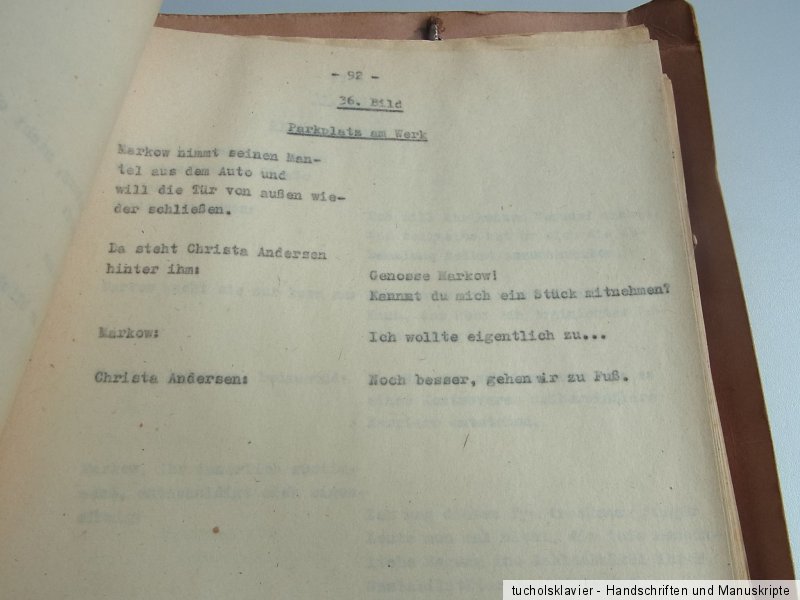
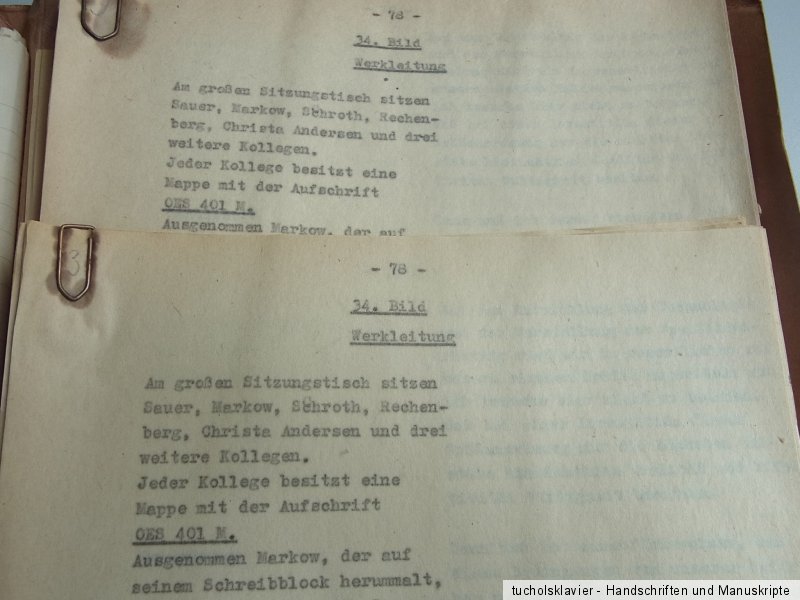
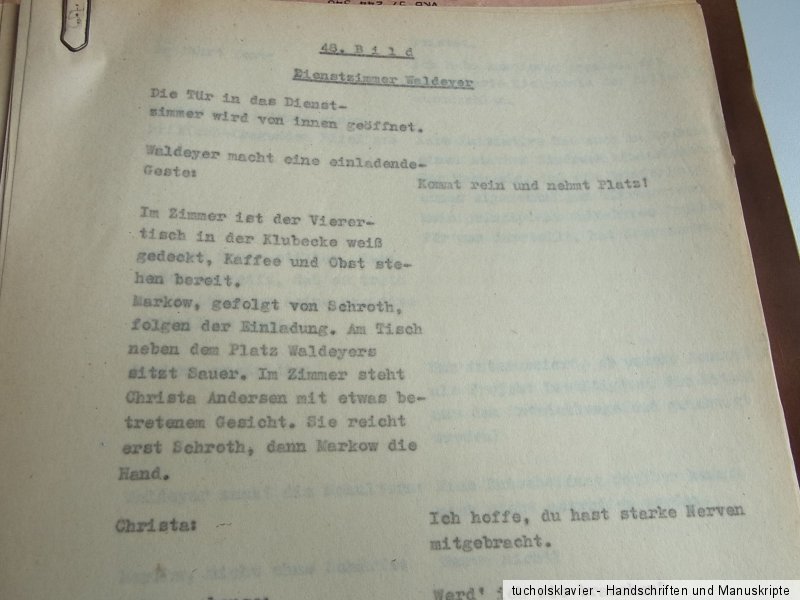
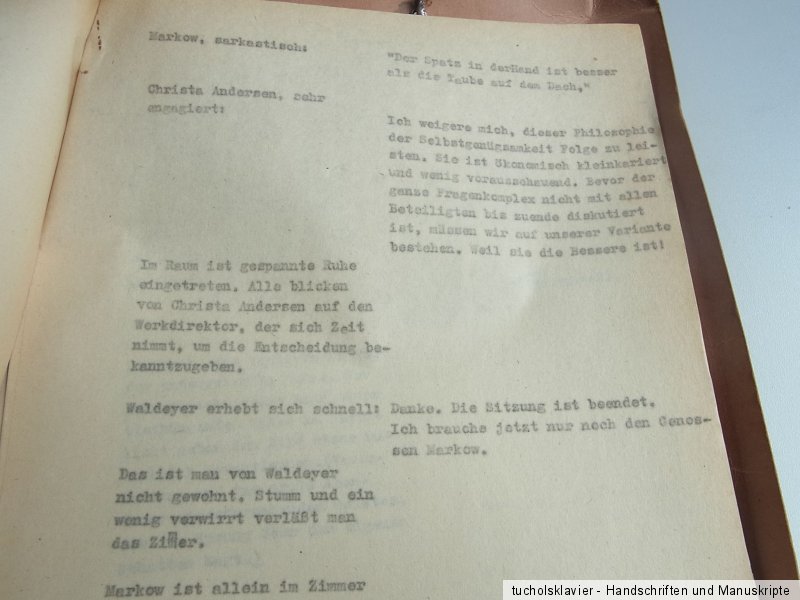
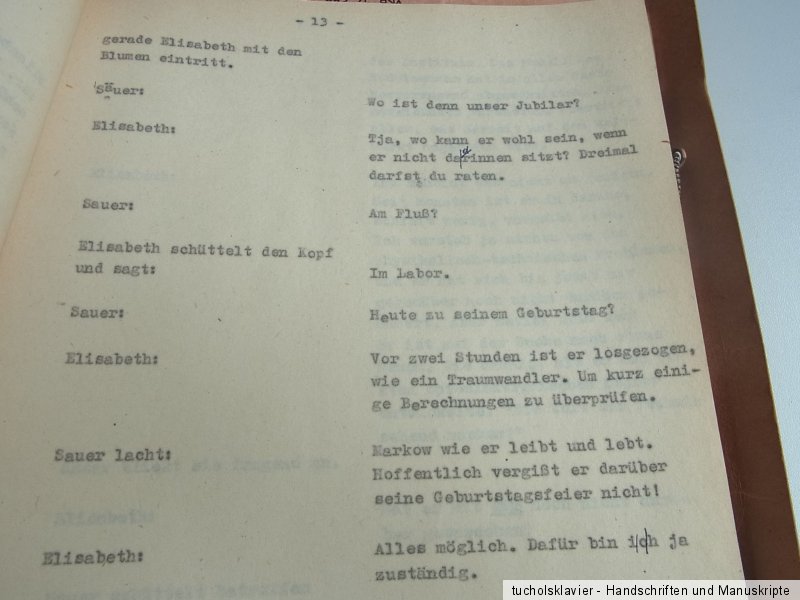
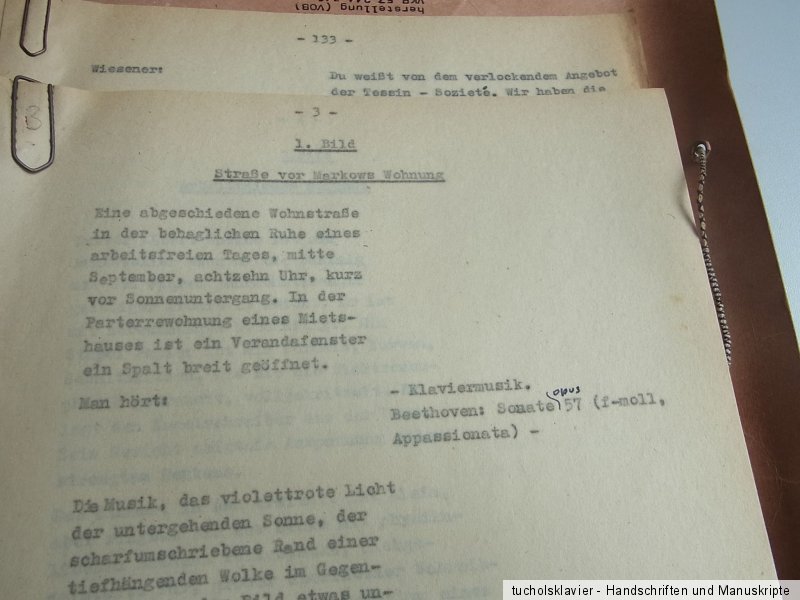

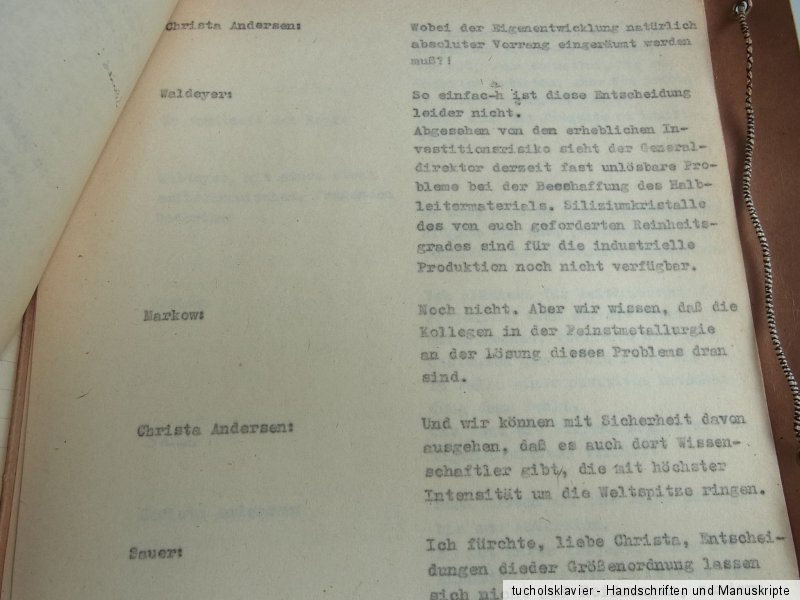

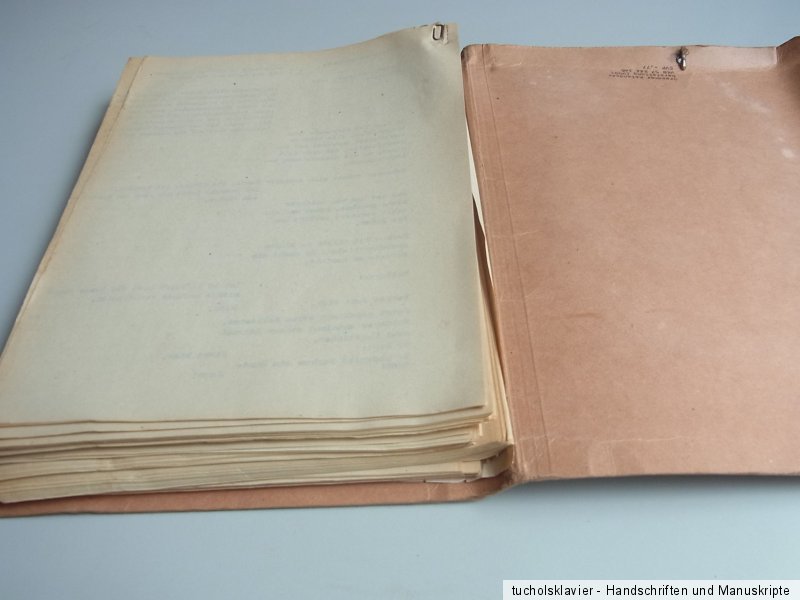

TRIXUM: Mobile-optimized auction templates and image hosting
About Walter Baumert (source: wikipedia):
Walter Baumert (*19. February 1929 in Erfurt; † 22. September 2016 in Berlin) was a German writer. He primarily wrote scripts for GDR television films.
Life: Walter Baumert came from a Prussian civil servant family. As a 16-year-old high school student, he volunteered for the Volkssturm, lost his father and parents' home in Posen, was taken prisoner by the Americans and finally found his mother in a village in Eichsfeld. After the revelations at the Nuremberg Trials, he lost his youthful ideals and broke with his bourgeois world.
He learned to be a bricklayer in preparation for studying architecture, but studied philosophy from 1952 to 1958 and then worked for GDR television. He wrote the scripts and television play scenarios for 23 films, some of them in multiple parts. The continuation of his socially critical cycle “Café on Main Street” was banned in 1976. The planned 12-part series about Friedrich Engels' youth was also on hold for 10 years until it was reduced to four parts and broadcast in the GDR in 1985 and taken over by the Federal Republic of Germany in 1989. Production of the two-part television play “The Challenge” was stopped twice until the film was allowed to be broadcast in a heavily shortened and defused form in 1986. The production of the two-part historical television film “The First Year of Liberation” was completely banned. Two of Baumert's books were published at the same time in the GDR and the Federal Republic.
At 16. In June 1961, Walter Baumert received the FDGB literary prize from Herbert Warnke in Magdeburg (left in the picture)
Literature and art prizes
Literature Prize of the Free German Trade Union Federation 1959, 1961
Erich Weinert Medal 1960
Children's and Young People's Book Prize from the GDR Minister for Culture in 1962
Art Prize of the Free German Trade Union Federation 1982 (collectively), 1983, 1987 (collectively)
Main prize of INTERVISION Plovdiv 1981 (collective).
factories
And WEN the devil does not torment... Children's book publisher Berlin, 1975
Look at the earth. Verlag Neues Leben, Berlin 1981. The Flight of the Falcon. Weltkreis-Verlag, Dortmund 1981 (two identical editions under different titles)
The investigation. Verlag Neues Leben, Berlin 1985. Weltkreis-Verlag, Dortmund 1985
Poems from five decades 1945 - 1995. EDITION digital, Pinnow 2012
Filmography
1959: The green folder
1960: Love at the last sight (according to with Winfried Nonnewitz)
1960: The Avalanche
1961: Honeymoon without husband (acc. with Hans-Georg Kalb)
1961: The unknown quantity
1961: If you stick with me
1962: The night on the highway
1962: The new slogan (according to with Werner Dworski)
1963: The silver wedding anniversary
1965: Episodes of Happiness, 2 parts
1966: Shadow over Notre-Dame (according to with Herbert Schauer and Otto Bonhoff), 4 parts
1967: For each other, 1. Part: The Designer 2. Part: The factory manager
1968: Secret ode B 13, (according to. with Armin Müller based on the novel by Eduard Fiker), 4 parts
1968: The Black Rider (acc. with Armin Müller), 3 parts
1969: The Lawyer (acc. with Otto Bonhoff)
1969: Longing for Sabine, from the cycle “Café on Main Street”
1970: Dust and Roses, from the cycle “Café on Main Street”
1976: A chance for Manuela, from the cycle “Café on the Main Street”
1976: Farewell to Gabriela, from the cycle “Café on Main Street”
1981: The investigation
1985: Flight of the Falcon, based on the novel "Look at the Earth", 4 parts
1986: The Challenge